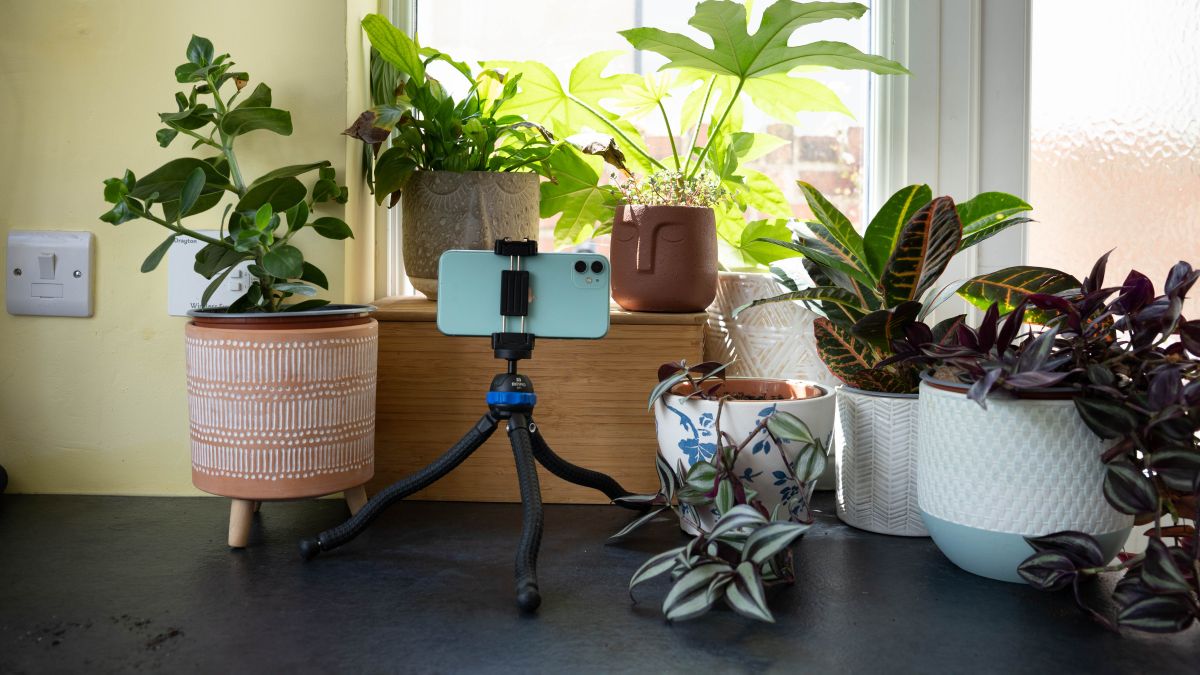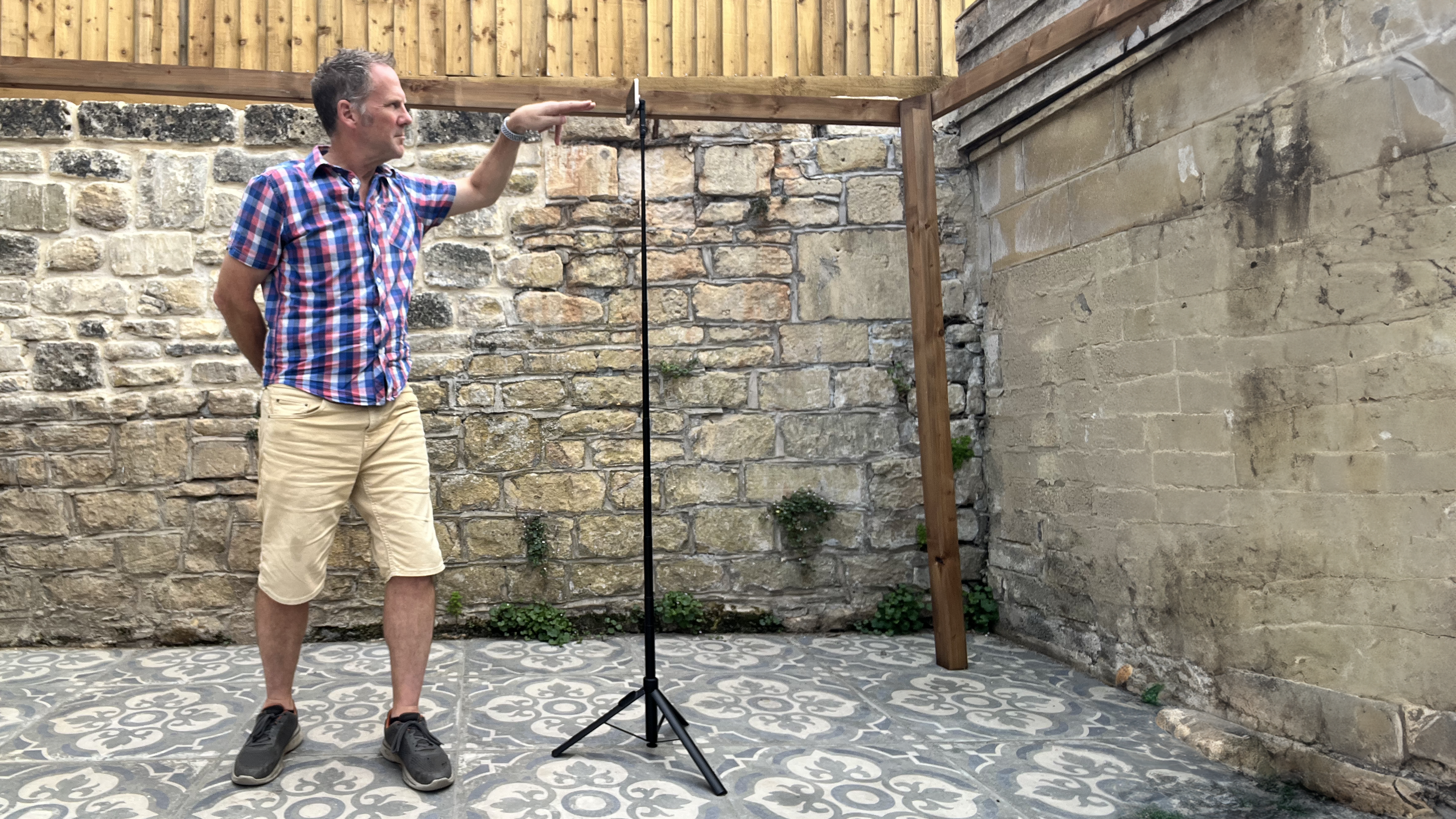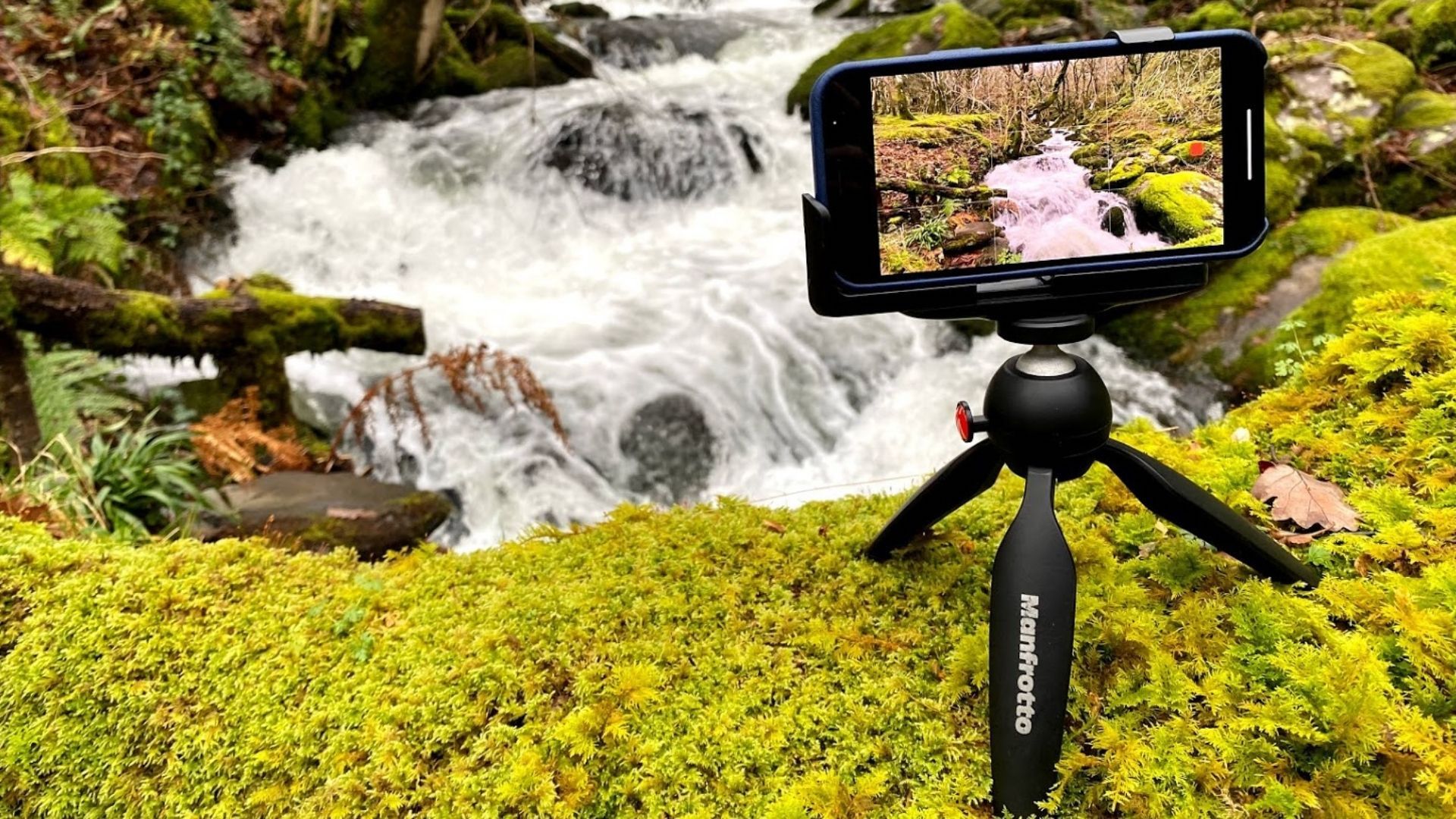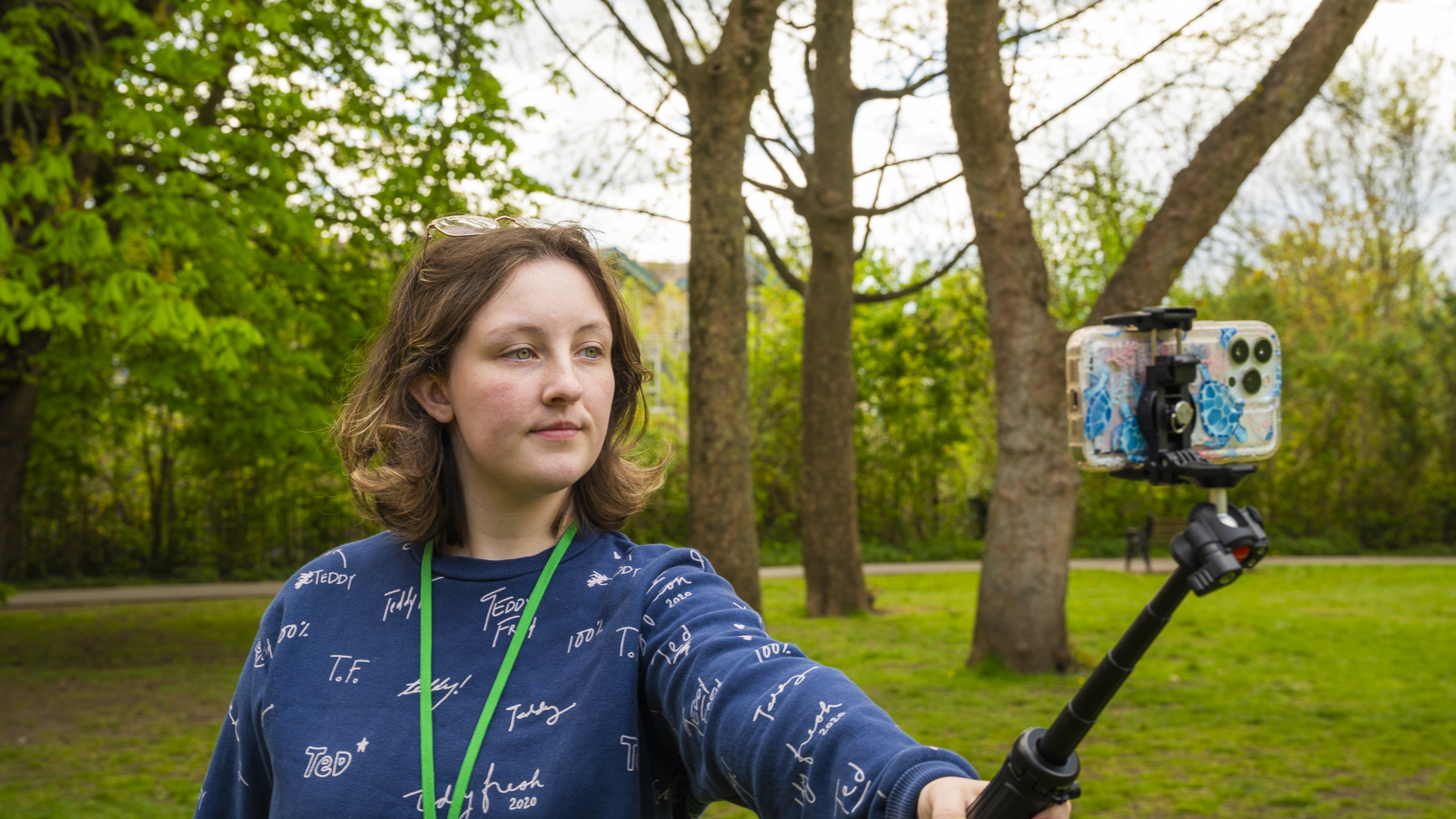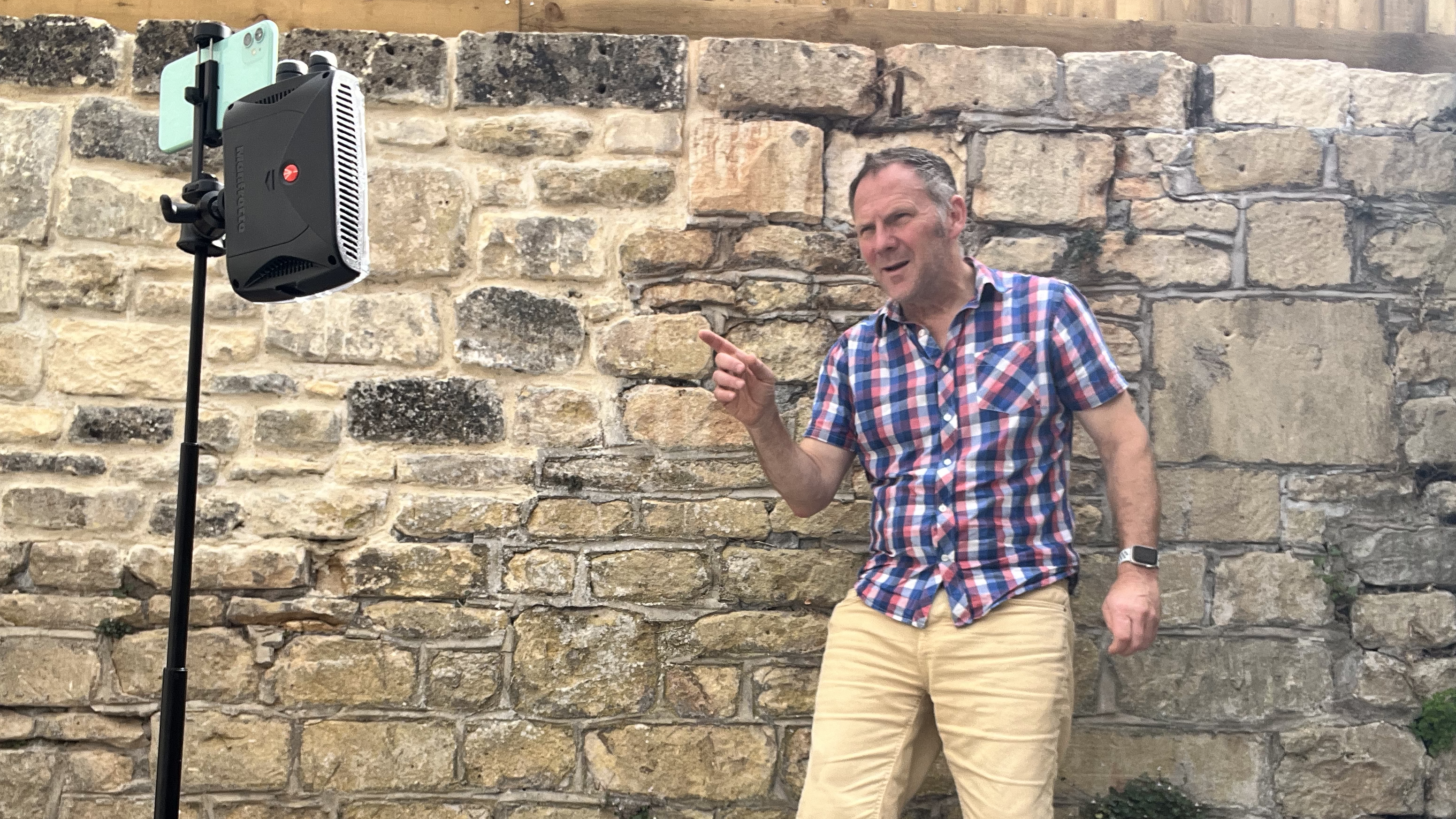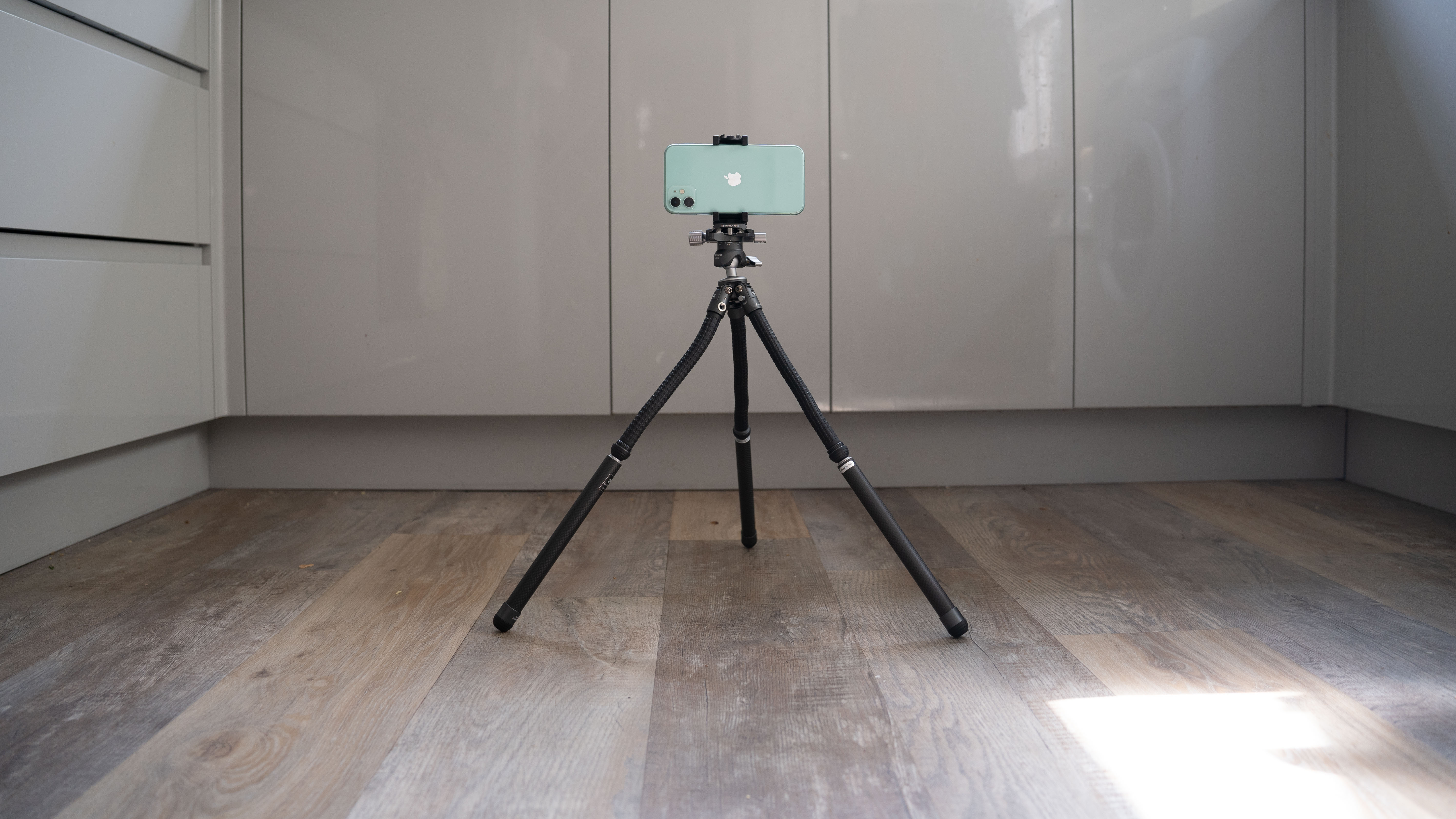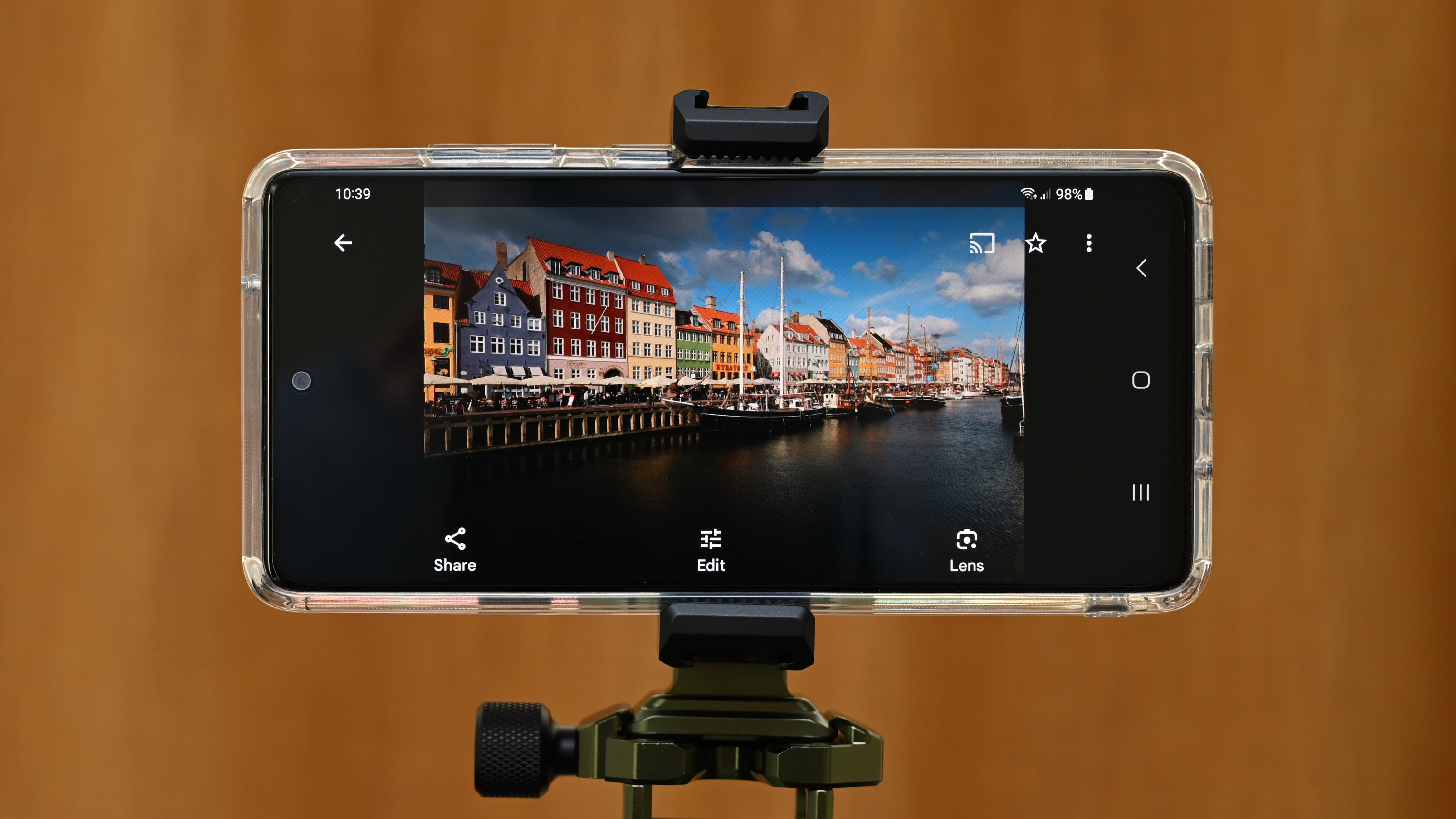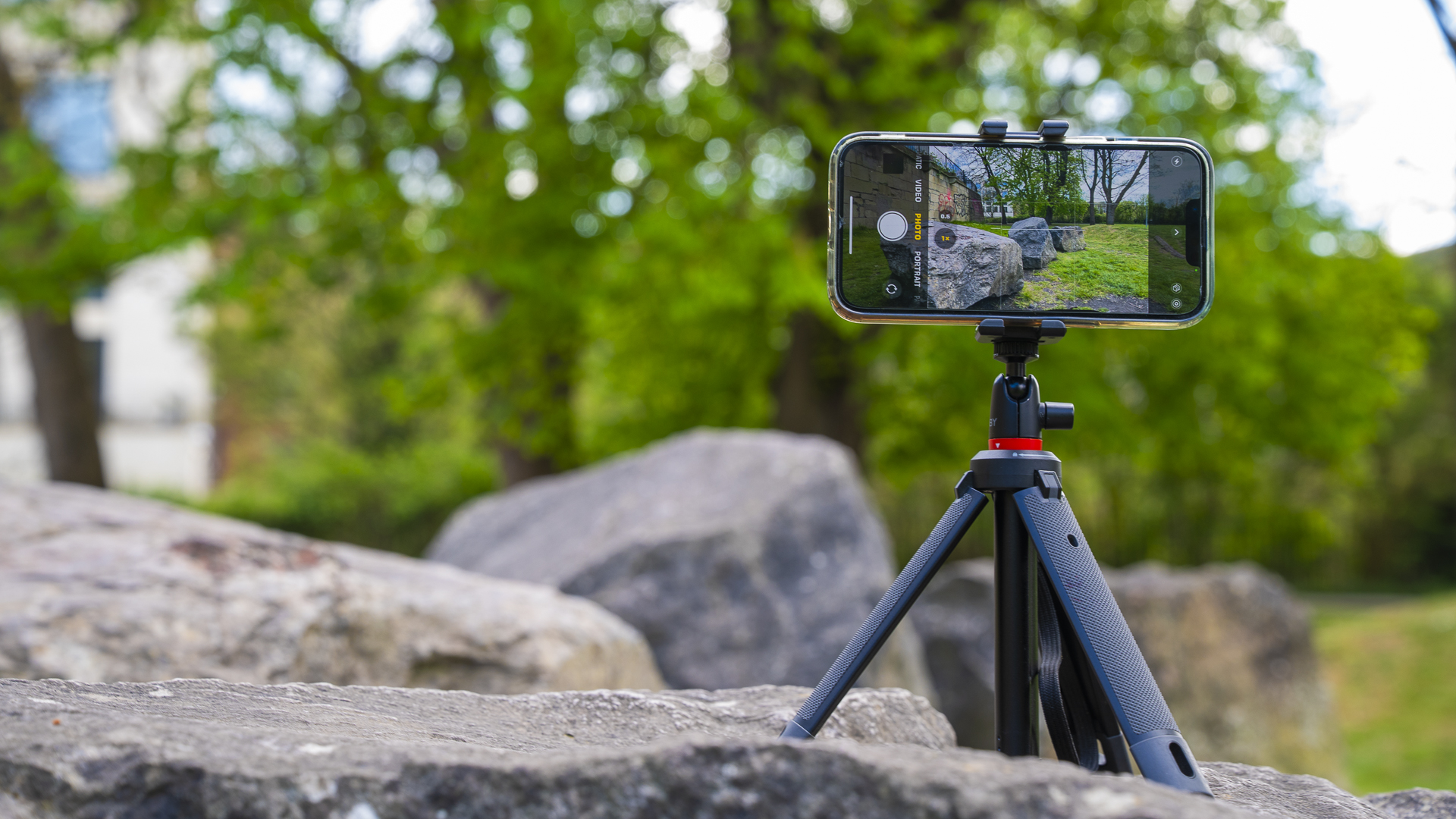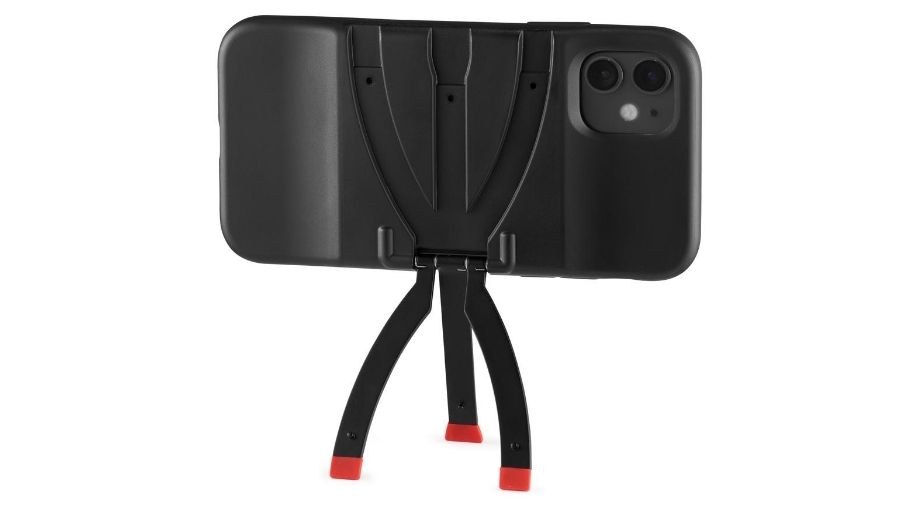The best phone tripods in 2025: Android and iPhone tripods for long exposures, selfies, and super-stable video
The best smartphone supports are small and light, simple to set up, and open up a world of creative shooting opportunities
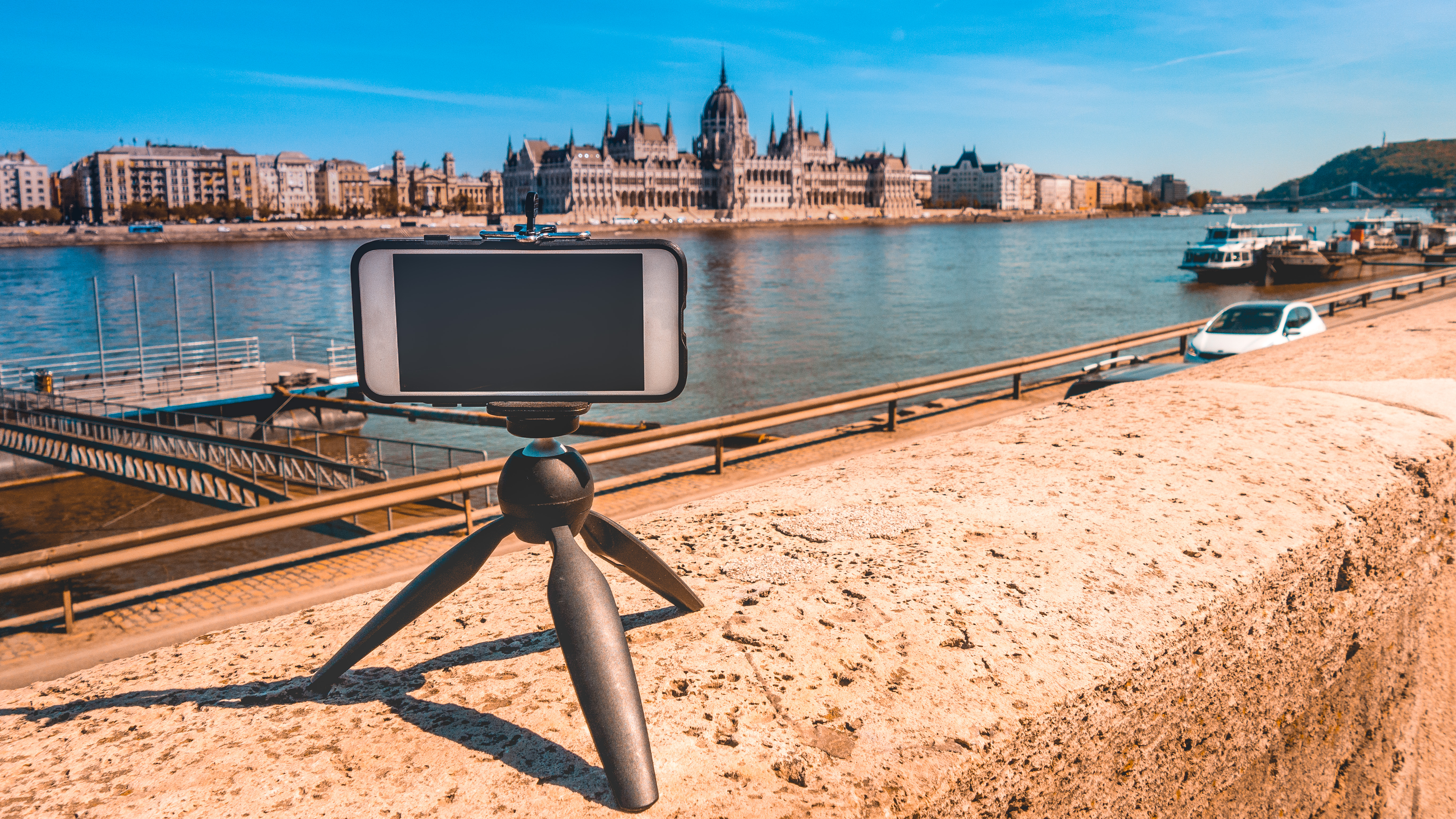
With one of the best iPhone and Android tripods, you can take your smartphone shooting to a whole new level. They’re small enough to carry everywhere, slipping easily into a bag or pocket, but allow for experimenting with new shooting techniques, especially when used with the best photo apps, enabling you to take control of your smartphone’s camera settings.
While the best camera phones are always getting better, able to do things that the owners of the first iPhone could only have dreamed of, some things are limited by hardware. A properly sharp long exposure, for instance, can only be achieved with stable camera support (no matter what claims a manufacturer makes about stabilization).
At the bottom of this page, in the FAQs section, I've listed a few practical uses of a phone tripod, along with advice on how to choose one that's right for you. This list contains options for all budgets from reputable manufacturers, so let's get started!
Digital Camera World's Guides Editor, Adam, has been a fan of smartphone photography ever since buying his very first iPhone 3GS. Keen to take more than just phone snaps, he knows the importance of a solid support, and is your guide to the best smartphone tripods.
The quick list
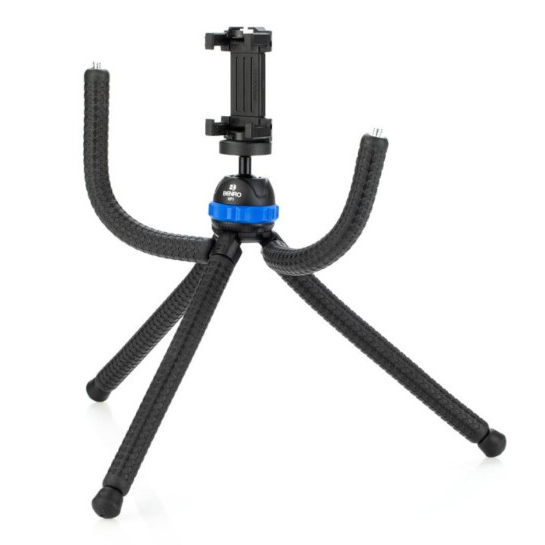
Fully flexible, with handy accessory arms that can take a light, mic or other accessories, the KoalaPod is a versatile support for serious phone shooters, at a great price.
Read more below
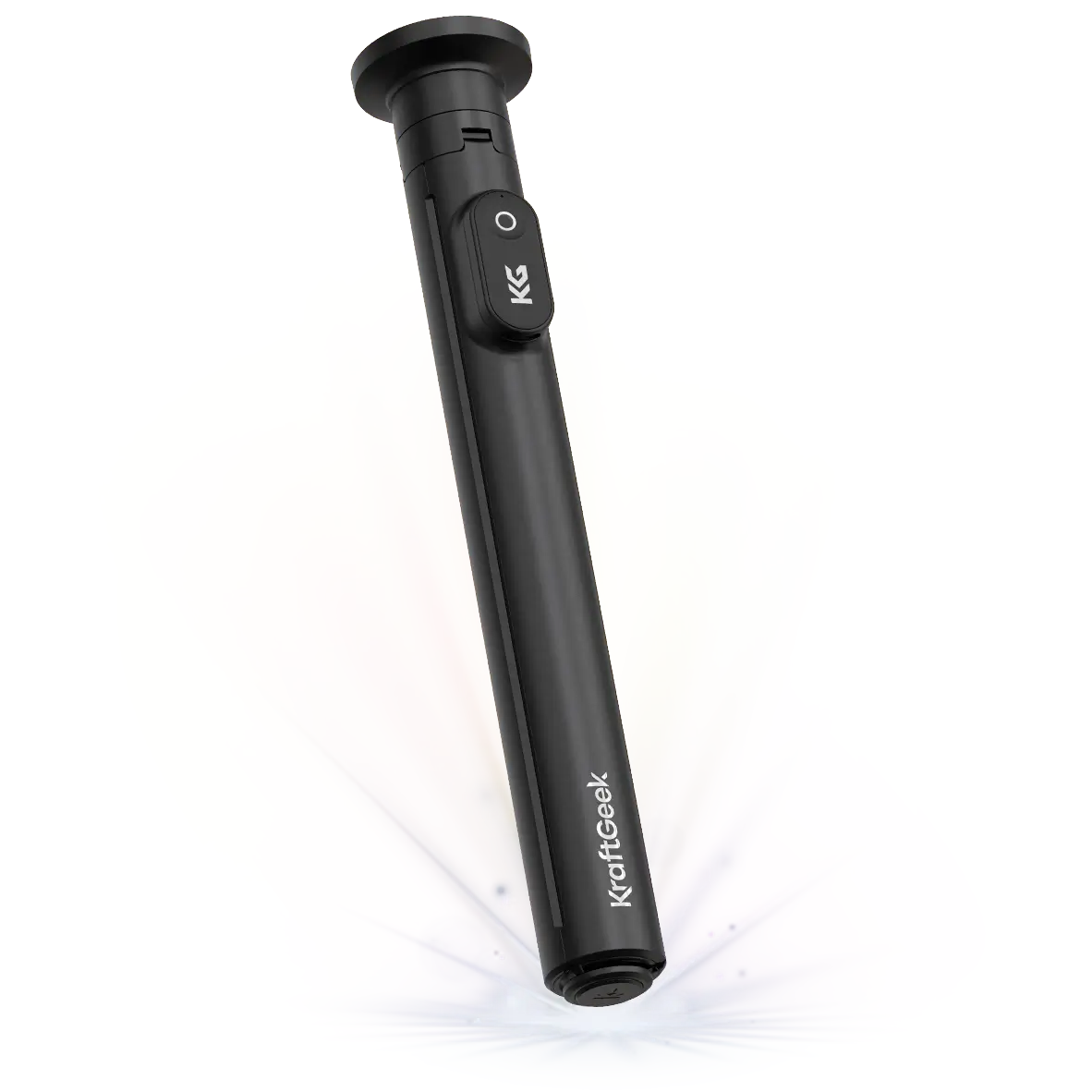
Reaching a towering 66 inches, this tripod goes much higher than most. Its legs pop out with a simple tap, but you'll need a MagSafe-compatible phone.
Read more below
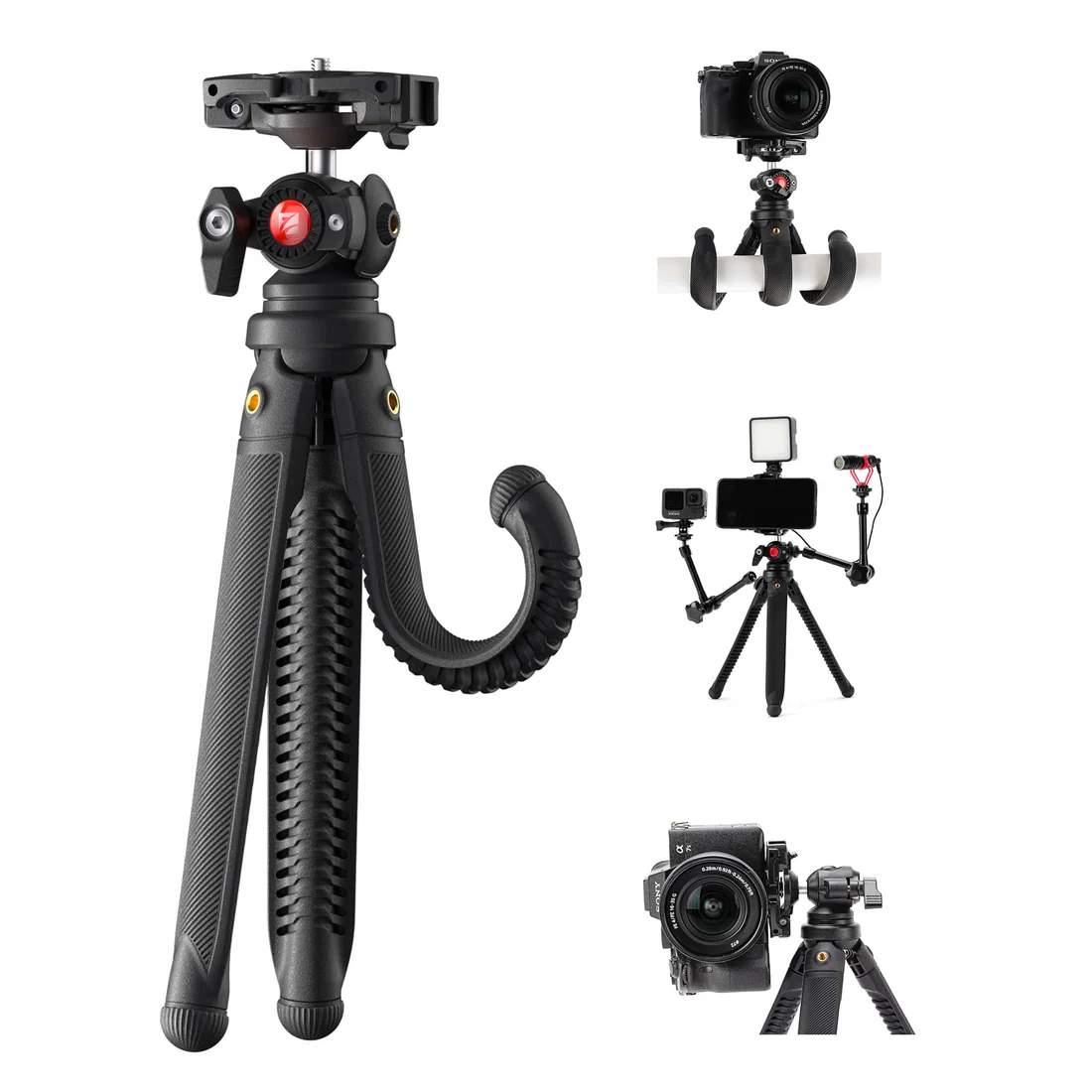
And I do mean flexible: with super-bendy yet super-strong legs, this can be wrapped around pretty much anything, enabling you to shoot from the highest of heights.
Read more below
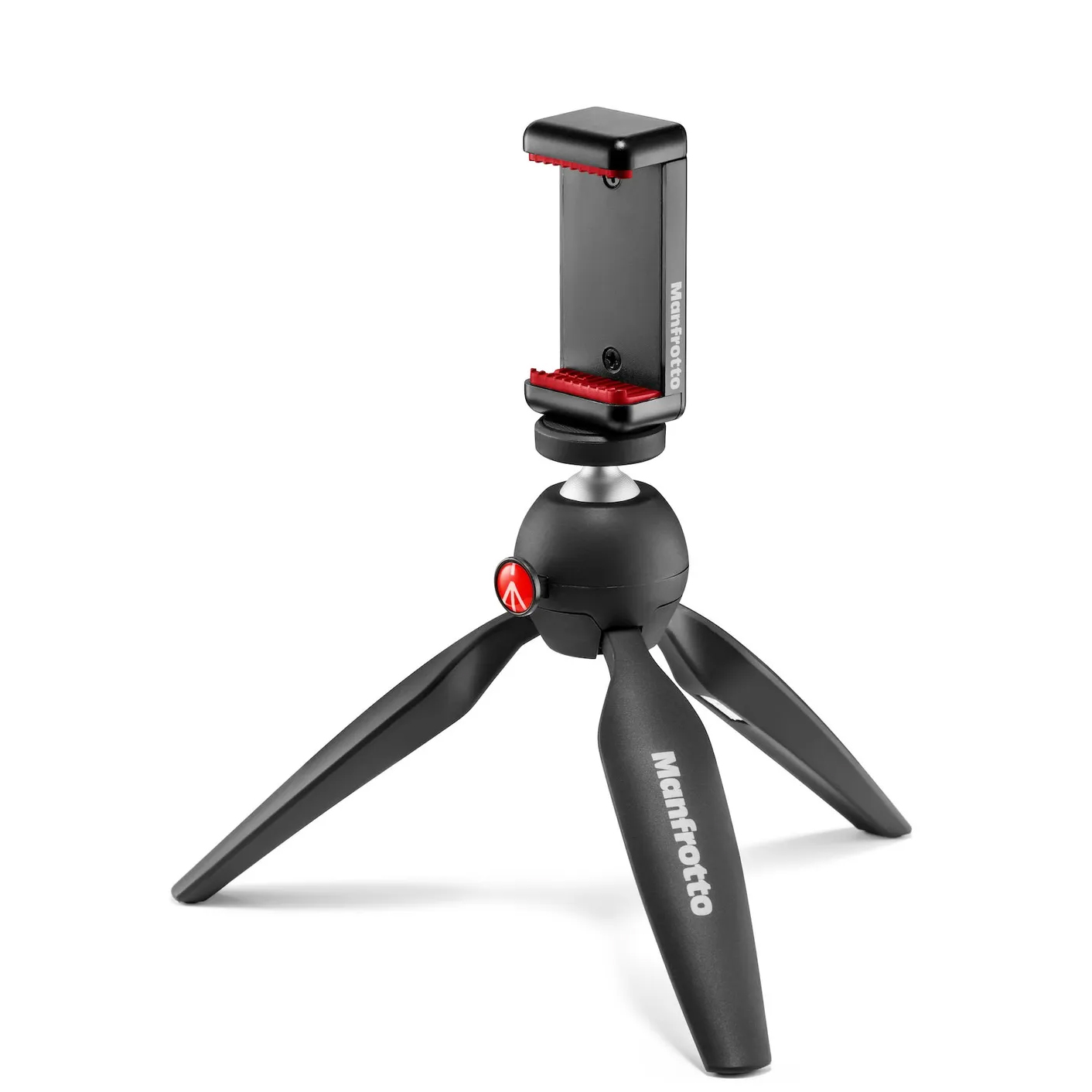
The famous Manfrotto PIXI is a simple, affordable option for those who simply need a rigid tabletop support for their phone.
Read more below
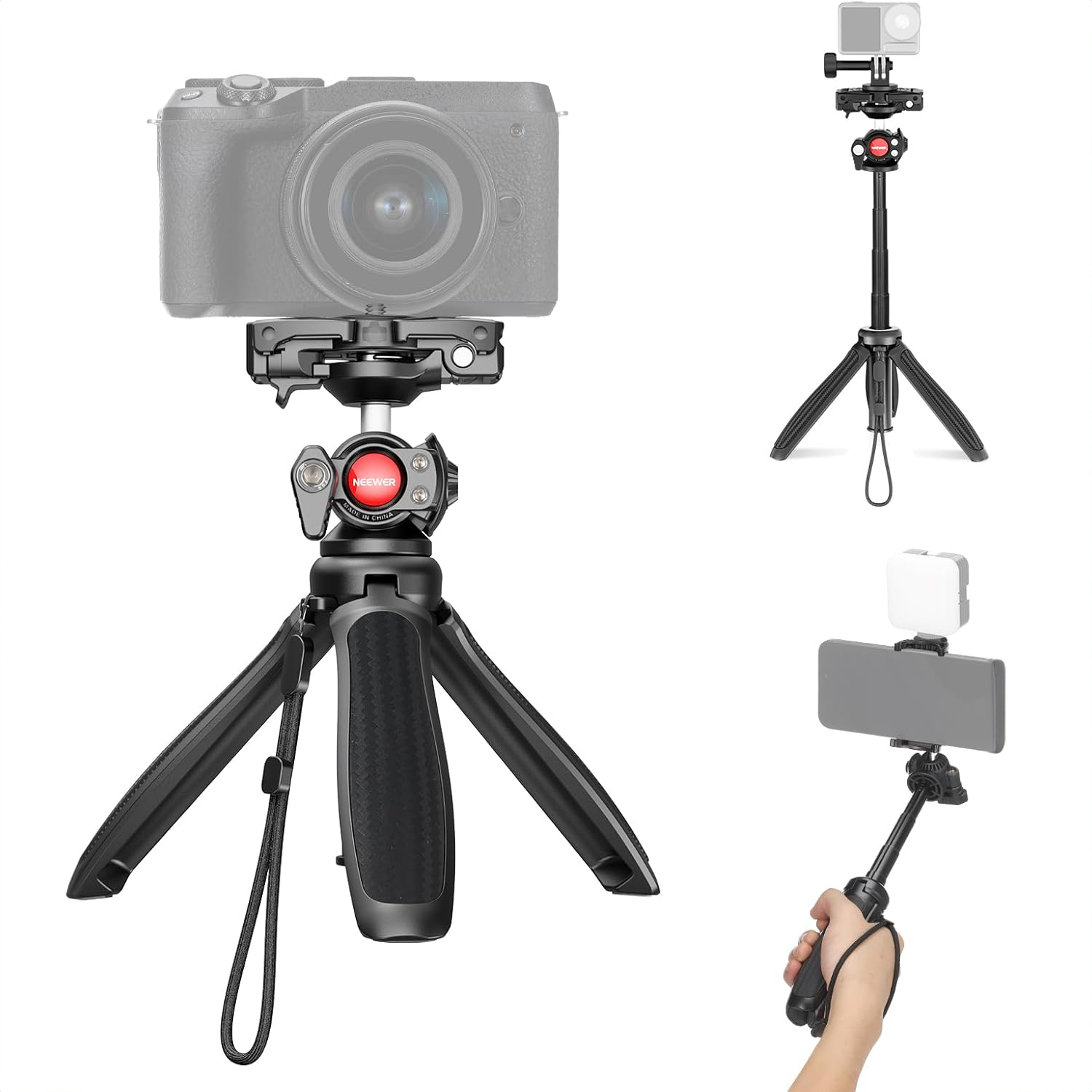
This 2-in-1 mini tripod and selfie stick is equally suitable for traditional cameras and smartphones, thanks to a clever camera plate that transforms into a phone cradle.
Read more below
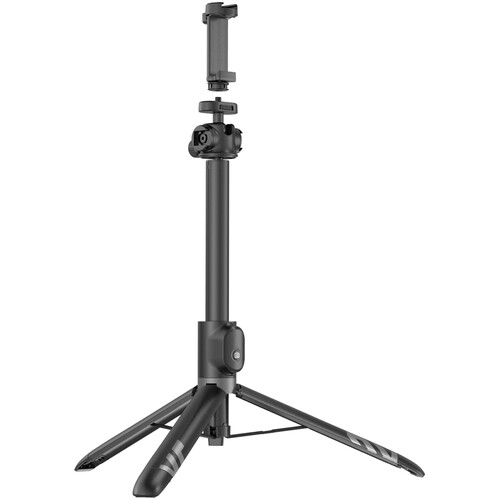
Whether you shoot with a phone, compact camera, or tablet, this convertible selfie stick has a versatile mount and attachments for lights, mics, and more.
Read more below
See more products
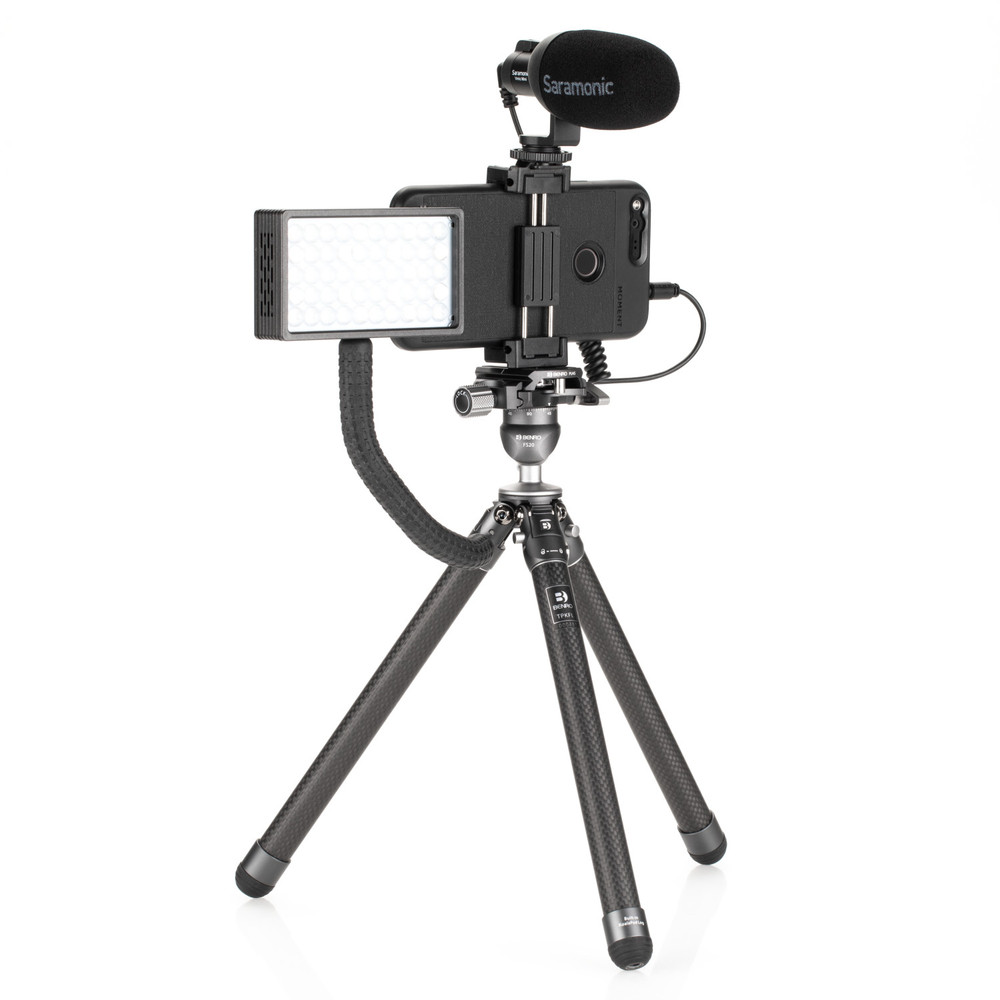
With rigid carbon fibre legs that contain flexible legs inside them, Benro's top-end TablePod Flex Kit offers the best of both worlds for smartphone shooters.
Read more below
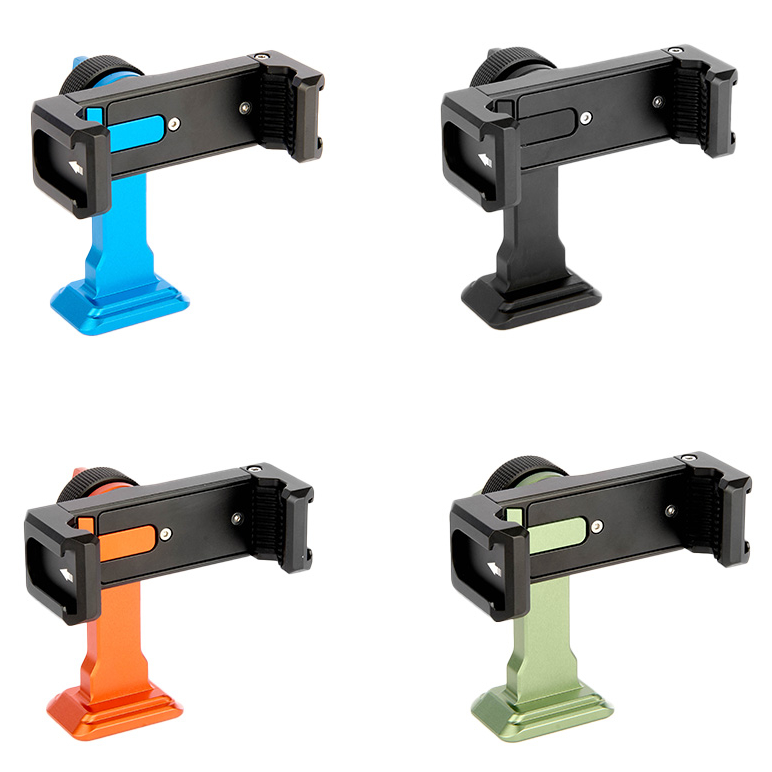
Not a tripod per se, but an inexpensive way to convert any tripod into a phone support – 3 Legged Thing Phil is a top-quality, easy-to-use clamp.
Read more below
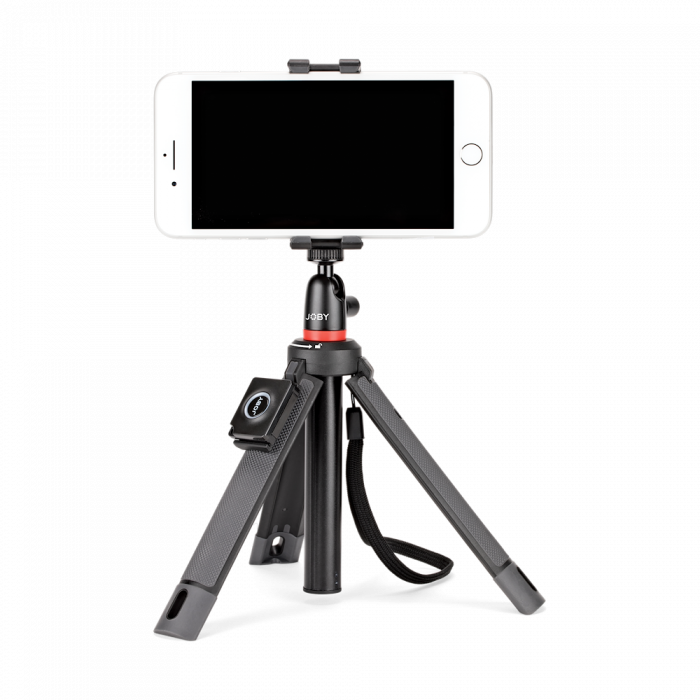
The Telepod Mobile packs down small, but doubles as a selfie-stick and its adjustable clamp enables it to cope with pretty much any size of smartphone.
Read more below…
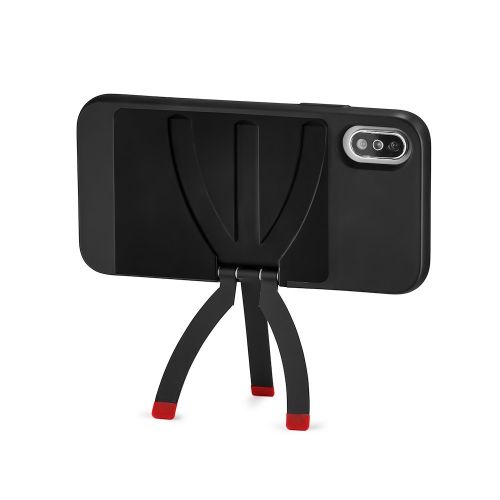
A clever phone case with built-in legs, Joby's StandPoint prioritizes convenience and portability over versatility. If your needs are simple – and you have the right phone – it's a great buy.
Read more below
The best iPhone and smartphone supports
Why you can trust Digital Camera World
Best overall
Specifications
Reasons to buy
Reasons to avoid
The Benro KoalaPod is a versatile and cleverly designed mini-tripod aimed at content smartphone photographers. Its defining feature, from which it derives its name, is its set of five flexible legs that can be bent and wrapped around various objects, such as branches, railings, or poles, allowing for creative camera placements where a traditional tripod cannot go. This 'wrap-around' functionality is enhanced by the ability to remove and reconfigure the legs, offering unique setups such as a five-legged base for maximum stability or a three-legged configuration with the remaining two legs serving as arms to hold accessories.
Each of the KoalaPod's legs terminates in a small foot but also contains a socket for attaching other components, adding to its modular nature. The tripod kit includes a compact ball head that locks with a simple twist-action, allowing for quick adjustments to camera angles. Crucially, it also comes bundled with a locking, Arca-compatible smartphone clamp, making it a comprehensive, out-of-the-box solution for mobile photography and vlogging. The entire system is built to support a load of up to 1.5kg, which is ample for smartphones with accessories like microphones, but can also handle lightweight mirrorless setups.
With its modular design and inclusion of a reliable smartphone clamp, the Benro KoalaPod is a well-thought-out, adaptable support for anyone looking to stabilize their phone in unconventional situations, making it an excellent addition to a content creator's kit.
See our full Benro KoalaPod review
Best tripod for MagSafe phones
Specifications
Reasons to buy
Reasons to avoid
The KraftGeek JustTap Magnetic Phone Tripod is designed primarily for MagSafe-compatible iPhones, utilizing a strong magnetic mount that can securely hold up to 2.5kg. It will also hold phones in a magnetic case, and an adhesive magnetic ring is included. The product also comes with a rechargeable Bluetooth remote control with a 10m range, capable of up to 20,000 shutter activations on a single charge.
Its 'JustTap' functionality allows it to quickly transform from a selfie stick to a tripod by tapping its base gently on the ground, whereby three legs pop out to form a stable platform that can support your setup up to an impressive maximum height of 66 inches (5.5 feet), making it one of the tallest options available and perfect for eye-level shots.
While its extended height is hard to beat, this does limit its portability somewhat; with a stowed length of 13 inches, it's hardly a pocket-sized accessory. But its robust build and clever design earn it the number one spot for those with MagSafe phones. It offers great value, too.
See our full KraftGeek JustTap Magnetic Phone Tripod review
Most flexible phone tripod
Specifications
Reasons to buy
Reasons to avoid
The Freewell Vlogpod is a tabletop mini-tripod with flexible legs, designed to be wrapped around various objects, such as posts and branches, as well as used on flat surfaces. The secret to its flexibility is a seven-strand aluminum core inside each leg, encased in durable ABS plastic and polyamide glass fiber. This construction allows the legs to be bent into your desired shape while maintaining the rigidity needed to support a payload of up to 3kg, which is more than enough for any smartphone.
But it's not just for smartphones. The spring-loaded cradle that holds your phone securely tucks away to form a sturdy camera mount that can handle quite heavy DSLR or mirrorless setups. This clever convertible mount sits atop a removable ball head that offers 360-degree panning and has a cutout for vertical shooting.
I was particularly impressed with the Vlogpod's ability to hold its shape firmly, even with heavier loads. The ball head is smooth to operate and secure once locked. While the tripod lacks a center column for height extension, this is compensated for by its ability to attach to elevated objects in the environment. It's a bit too bulky to carry in a pocket, but this is a necessary trade-off for its strength and versatility, and its 456g weight and overall strength make it a good and comfortable-to-hold solution for a flexible tripod.
See our full Freewell Vlogpod review
Best tabletop
Specifications
Reasons to buy
Reasons to avoid
Manfrotto markets its PIXI Mini Tripod and Universal Smartphone Clamp as separate items, but it generally works out cheaper to buy these two items as a complete kit. This comprises the tripod itself, which has an integral ball head and is suitable for use with small cameras, and a smartphone clamp that attaches via a standard 1/4-inch socket and can accommodate phones up to 83mm in width.
The Manfrotto PIXI itself is a stylish, compact, and highly popular tabletop tripod that offers straightforward functionality. Its small stature and lightweight build, weighing just 190g, make it a portable accessory that can be easily slipped into any camera bag or even a jacket pocket. One of its most distinctive features is its innovative push-button ball head. Instead of traditional levers or knobs, a red Manfrotto logo acts as a button that, when pressed, releases the ball joint, allowing for quick and intuitive repositioning of the camera. Releasing the button locks the head securely in place. This mechanism is not only fast but also very user-friendly.
Its premium build quality sets it apart from cheaper mini-tripods. The tripod's legs are crafted from a high-quality polymer and have rubberized feet for a stable, slip-free grip on various surfaces. When the legs are closed, they form a comfortable, ergonomic handgrip, making the PIXI an excellent tool for vlogging or capturing steady handheld video. However, it’s not the most flexible mini-tripod in terms of leg positioning, as the legs have only one fixed angle.
See our full Manfrotto PIXI mini tripod review
Most versatile phone tripod
Specifications
Reasons to buy
Reasons to avoid
The Neewer TP38 is a two-in-one desktop mini-tripod and selfie stick that is designed to support both cameras and smartphones. It features a clever and versatile camera plate and phone cradle, which eliminates the need for separate attachments and makes it suitable for photographers frequently switching between using a phone and a dedicated camera.
The robust build quality feels more durable compared to some other tabletop tripod/selfie stick combinations, and the head is well-engineered, supporting a decent load rating. However, the device only offers a limited degree of extension via its non-locking telescopic center column.
I was impressed with the Neewer TP38's compact design and its usefulness in various shooting situations, including vlogging, live streaming, and general photography. It is a portable and practical solution for photographers and content creators who require a flexible support system and who switch between a traditional camera and a smartphone.
See our full Neewer TP38 review
Best phone tripod for vloggers
Specifications
Reasons to buy
Reasons to avoid
The KraftGeek Variety Tripod is a highly adaptable accessory designed specifically for content creators, including vloggers, influencers, and TikTokers. It seamlessly transitions between a selfie stick, a tabletop tripod, and a full-sized tripod. Made primarily of aluminum, the tripod is relatively lightweight at just 450g and can support a maximum load of 2kg, making it well-suited for smartphones and smaller cameras.
A key feature is its impressive maximum height, which extends to 62.5 inches (158cm), and is super useful for creating professional 'to-camera' video presentations. Multiple cold shoe mounts enable easy attachment of accessories, such as microphones and LED panels. It comes with a flexible ball head for cameras and a rotating universal cradle for smartphones, offering compatibility with a wide array of devices.
While the tripod's extended height is a significant advantage, this comes at the cost of compactness when it's collapsed. It is not as portable as smaller, pocket-sized tripods. However, this tradeoff is well worth it, as the Variety Tripod provides a solid and stable platform and is a compelling and affordable choice for smartphone shooters who need a versatile and robust support system for their content creation needs.
See our full KraftGeek Variety Tripod review
Best 2 in 1
Specifications
Reasons to buy
Reasons to avoid
The standout feature of the Benro TablePod Flex Kit is its unique hybrid design that combines two types of legs in one package: a set of rigid, high-quality carbon fiber legs and a separate set of flexible, wrap-around legs. The carbon fibre legs provide a stable, traditional mini-tripod setup, ideal for tabletop shots or for use as a comfortable handgrip for vlogging. The legs can be set at three different lockable angles, providing additional flexibility for leveling shots on uneven surfaces or achieving low-angle perspectives. For more creative placements, the flexible legs can be attached to wrap around objects like poles, branches, or railings.
The kit also includes a robust Arca-Swiss compatible ball head. This ball head is well-engineered, featuring separate pan and tilt controls for precise adjustments and offering a solid platform for cameras weighing up to 3kg. This impressive load capacity means it can comfortably support not just smartphones, but also mirrorless cameras with fairly substantial lenses.
The TablePod Flex Kit combines excellent build quality with innovative design. While it may be more complex than a simple mini-tripod, its ability to adapt to nearly any shooting scenario makes it a powerful and practical tool. This versatility comes at a price, and it's more expensive than other options, but it's worth the money for creators who want to switch between studio-style tabletop setups and more dynamic, on-the-go shooting.
See our full Benro TablePod Flex review
Best phone clamp
Specifications
Reasons to buy
Reasons to avoid
This isn't a tripod, but the 3 Legged Thing "Phil" is a premium, robustly engineered smartphone clamp that enables you to attach your camera phone to any regular tripod that isn't expressly made for smartphones. Unlike the flimsy, plastic clamps that often come with consumer-grade tripods, the Phil is crafted from aerospace-grade magnesium alloy, giving it a reassuring solidity and durability. This all-metal construction ensures a very secure grip on a wide range of smartphones, providing confidence that your device is safe, even when mounted at an angle.
Its key design feature is the integrated Arca-Swiss compatible base. This allows the clamp to be mounted directly onto any standard Arca-Swiss tripod head without the need for an additional quick-release plate, creating a seamless and stable connection. Adding to its versatility is a built-in cold shoe mount at the top, which is perfect for attaching accessories like a compact LED panel or an external microphone, effectively turning a smartphone into a more capable vlogging rig.
While the Phil offers exceptional build quality, secure grip, and professional mounting options, this comes at a fairly steep price, and is something of a luxury item in a market filled with much cheaper, albeit less durable, alternatives. But it’s a top-tier choice for those who demand the utmost in build quality and are willing to pay a premium for it.
Read our full 3 Legged Thing Phil review
Best phone tripod for selfies
Specifications
Reasons to buy
Reasons to avoid
The Joby TelePod Mobile is a combination selfie stick and mini-tripod that is primarily designed for phone photography or very lightweight cameras. It features a grip that folds out to form tripod legs, and a telescoping center column with a smartphone cradle. It has a pretty decent reach of 56cm, considering its compact stowed length of 19cm.
It comes with Joby's Impulse Bluetooth remote trigger, which enables you to remotely activate your phone's shutter or start video recording. It can only handle very modest payloads, though, so it's strictly for use with phones or lightweight action cams.
Its dual functionality as a selfie stick and mini-tripod, combined with the Bluetooth remote, makes it particularly well-suited for mobile content creators and photographers who prioritize portability and ease of use.
See our full Joby TelePod Mobile review
Best tripod case
Specifications
Reasons to buy
Reasons to avoid
The Joby StandPoint merges two essential smartphone products into one: a protective case and a functional tripod. The case itself is a relatively standard, durable polycarbonate shell designed to offer everyday protection against minor drops and scratches. Its standout feature, however, is the pair of small, aluminium tripod legs ingeniously integrated into the back of the case.
When not in use, these legs fold down flush into the case, adding some thickness but remaining unobtrusive. To deploy the tripod, you simply unfold the two legs, which click into place to form a stable A-frame base, making it ideal for capturing long-exposure photos and time-lapses. The tips of the legs are rubberised, providing a secure grip on smooth surfaces. The design also allows for minor angle adjustments to get the framing just right. It's also an ideal support for watching media or conducting video calls.
The StandPoint's sheer convenience is its main selling point; it’s a clever solution for those who frequently find themselves propping their phone up against random objects. However, this convenience comes with trade-offs. The case is noticeably bulkier than standard phone cases, and its protective capabilities, while adequate, may not be as robust as more specialized rugged cases. While the tripod is stable for general use, it lacks the flexibility of a traditional mini-tripod with adjustable legs. But perhaps the biggest drawback is that it's only available for older iPhone models 12, 11, and X (and variants), as well as the Google Pixel 4.
Read our full Joby StandPoint review
How to choose a phone tripod
Regular tripods and even travel tripods are too big and bulky for a smartphone shooter; they’ll negate the main advantage of a smartphone, which is that it enables you to travel light.
Smartphones don’t have a standard tripod socket, either. This means you need another way to mount the phone to the tripod. The solution is a phone clamp; these are sometimes sold separately and sometimes come in bundles with mini tripods. I’ve included both complete bundles and standalone clamps, so you can decide how best to construct your setup.
The other main deciding factor is whether you want a flexi-legged tripod that can grip onto protruding objects and uneven surfaces or a rigid-legged one for tabletop use. While the former is more versatile, the latter gives you a stable platform that's good for consistency (handy if you're regularly vlogging and want your shots to look the same).
How we test mini-tripods
Our testing procedure for phone tripods is similar to our regime for full-size tripods. We measure the maximum operating height and its folded height for carrying, with the head or clamp attached, if there is one, and also check the weight using electronic scales.
We check the ease of use, smoothness, and precision of all available adjustments in each set of legs and any included ball head or clamp. If the tripod has flexible legs, we attach it to different objects to measure its stability and ease of use.
FAQs
What are the uses of a phone tripod?
I’ve listed a few things here that a good smartphone tripod will allow you to do:
• Capture night shots. Even if an app lets you open up the shutter on your smartphone camera for a long time, without a good source of support, all you’ll get is a blurry image. Mounting your phone on a tripod means you can shoot long exposures, without worrying about image blur caused by camera-shake.
• Get vlogging. If you want to vlog with your smartphone, you'll need a good support so you can set your camera up without having to hold it.
• Get a selfie without the arm-stretch. In a similar vein, phone tripods make it easy to get selfies and group selfies without having to stretch out your arm.
• Try a timelapse. Again, locking your phone in a fixed position opens up all sorts of creative possibilities, one of which is time-lapse shooting.
• Shoot panoramas. There are apps that will stitch together a rudimentary panorama. But the results you get will dramatically improve if you use a tripod.
Read more:
- The best selfie sticks
- The best gimbals for your iPhone
- The best iPhone for photography
- The best camera phones
- The best budget camera phones
- The best iPhone for photography
- Best iPhone printer
The best camera deals, reviews, product advice, and unmissable photography news, direct to your inbox!

Prior to joining digitalcameraworld.com as Guides Editor, Adam was the editor of N-Photo: The Nikon Magazine for seven years, and as such is one of Digital Camera World's leading experts when it comes to all things Nikon-related.
Whether it’s reviews and hands-on tests of the latest Nikon cameras and lenses, sharing his skills using filters, tripods, lighting, L brackets and other photography equipment, or trading tips and techniques on shooting landscapes, wildlife and almost any genre of photography, Adam is always on hand to provide his insights.
Prior to his tenure on N-Photo, Adam was also a veteran of publications such as PhotoPlus: The Canon Magazine, so his wealth of photographic knowledge isn’t solely limited to the Big N.
